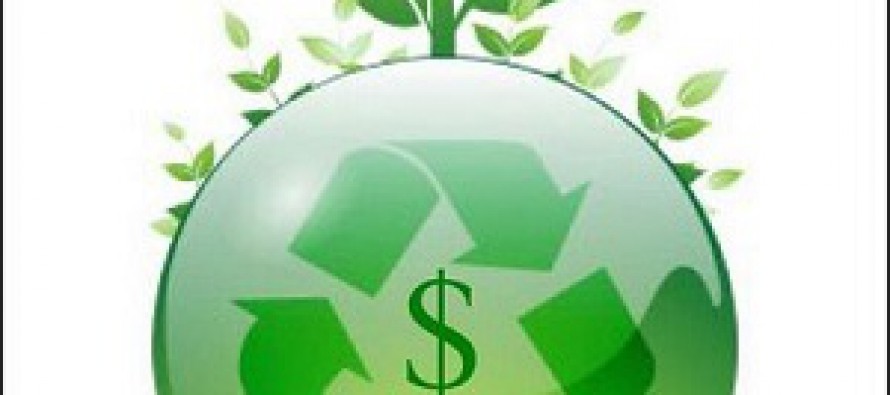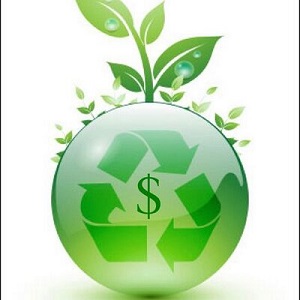Hydropower AB 32 scam as bad as one L.A. Times detailed

 The Los Angeles Times had a good analysis over the weekend of how AB 32 is being gamed in ways that make suspect its claims to be cleaning up the environment.
The Los Angeles Times had a good analysis over the weekend of how AB 32 is being gamed in ways that make suspect its claims to be cleaning up the environment.
California’s pioneering climate-change law has a long reach, but that doesn’t mean all its mandates will help stave off global warming.
To meet the requirement that it cut carbon emissions, for example, Southern California Edison recently sold its stake in one of the West’s largest coal-fired power plants, located hundreds of miles out of state.
But the Four Corners Generating Station in New Mexico still burns coal — only the power that Edison once delivered to California now goes to a different utility’s customers in Arizona.
Similar swaps are taking place at coal plants throughout the West, and they underscore the limitations California faces as it tries to confront climate change in the absence of a coherent federal plan.
Unilateral CA action never made sense for many reasons
This quandary was predicted by AB 32’s critics. California’s attempting to conquer climate change with unilateral action made little sense for one big reason — by itself it wouldn’t work, and only blindered greens would believe AB 32 would insipre the rest of the world to copy the Golden State. But there were also many other reasons to expect it would cause headaches. Such as …
Originally, California’s climate-change policies included a provision that would have demanded utility executives swear under penalty of perjury that the actions they took to reduce emissions would not result in a spike in greenhouse gases someplace else.
But federal officials warned Gov. Jerry Brown that too aggressive an effort to control emissions across state lines would risk disrupting the complex interstate electricity system.
In the end, the California Air Resources Board — which oversees the state’s 2006 climate-change law — allowed utilities a dozen “safe harbor” conditions under which electricity companies would be permitted to shift emissions to nearby states.
Critics called the conditions loopholes.
The board “was struggling with what it could do in enforcement,” said James Bushnell, a UC Davis expert in energy economics. “It was a tough issue.”
The exemptions are so broad, the board’s own advisory committee cautioned, that all the reductions in greenhouse gas emissions made by electricity companies could end up existing only on paper.
“If you use enough of those safe harbors, you can shuffle your way out of all your obligations,” said Severin Borenstein, a UC Berkeley economist who advised the board.
How California indirectly burns lots of coal
There are a lot of other AB 32-driven scams out there. Chuck DeVore has written for years about a similar assault on AB 32’s goals that state officials never talk about because they’d rather just pat themselves on the back because of the law’s symbolism and alleged glories.
California has become America’s largest electricity importer. With 37 million people producing about 13 percent of the U.S. gross domestic product, California imports about 23 percent of its electricity. This situation is compounded by the state’s environmental laws which, if a power plant can be built at all, typically consume seven years for permitting and construction vs. three years in competing Texas.
Complicating matters are a trio of California energy policy laws passed in 2006: AB 32, SB 1368, and SB 107. AB 32 mandates a 30 percent reduction in California’s greenhouse gas emissions by 2020 (BC Premier Campbell was particularly enthusiastic about this law). SB 1368 outlaws the renewal of coal-fired electricity contracts—imported coal energy powered about 16 percent of California’s grid in 2008. While SB 107 accelerated the requirement that California derive 20 percent of its electricity from renewable sources this year, renewable being defined as small hydro, geothermal, wind, solar, and biomass (we missed the target, meaning utilities, read ratepayers, get dinged).
Enter government-owned BC Hydro and its Powerex subsidiary. With abundant hydro power potential, British Columbia is seeking to become the Saudi Arabia of “green” energy. California environmentalists don’t see the irony in British Columbia damming rivers to provide power to California, while in California, environmentalists fight to demolish dams as unsightly threats to salmon.
The irony gets even deeper, though. British Columbia, perhaps due to Premier Campbell’s business-friendly tax and regulatory policies, is growing. That, combined with a severe drought (yes, when California gets a good water year, British Columbia often sees a drought) means that BC Hydro will be importing $220 million more electricity than it did last year. You read it correctly, hydro energy colossus British Columbia will be importing almost a quarter billion dollars more electricity this year than last. In fact, BC Hydro has imported more energy than it has exported in 10 out of 11 years. And, from where does this energy come? Washington State and Alberta Canada. And, what is the source of this electricity? Brace yourself. Coal and gas-fired plants.
DeVore: ‘Clean green’ and ‘dirty coal’ can’t be separated
That’s from Chuck’s 2010 article for Brietbart. It’s at least as juicy as the LAT’s weekend piece because it involves so much power.
I’ll give the state-assemblyman-turned-Texas-policy-wonk the last word:
Electrons in a grid, like dollars in an account, are fungible, meaning that “clean green” electrons cannot be separated from “dirty coal” electrons and both are mixed in with electrons from nuclear power plants. So, when the Premier of British Columbia comes to California to urge us to continue to make our state even more dependent on his province for electricity as we strive to make the planet better we shouldn’t fool ourselves. The fact is, BC Hydro is buying “dirty” power and then, in an act I’ll dub “electron laundering” is repackaging it for the silly, naïve, environmental-minded Californians as pristine green hydro power—with a nice mark up, of course (Canadians have to pay for their national healthcare after all).
Related Articles
CalWatchdog Morning Read – July 7
“Parole reform” ballot measure would reduce penalties for sex crimes Stanford historian burns CA policy making CA pension fund sucking up
Auction Off State Parks
John Seiler: The always incompetent California state government now can’t keep the state parks open. And it can’t keep the
BART strife: Bay Area liberals mugged by union reality
The old joke about many conservatives being liberals who were mugged by reality has a lot of heft to it.




